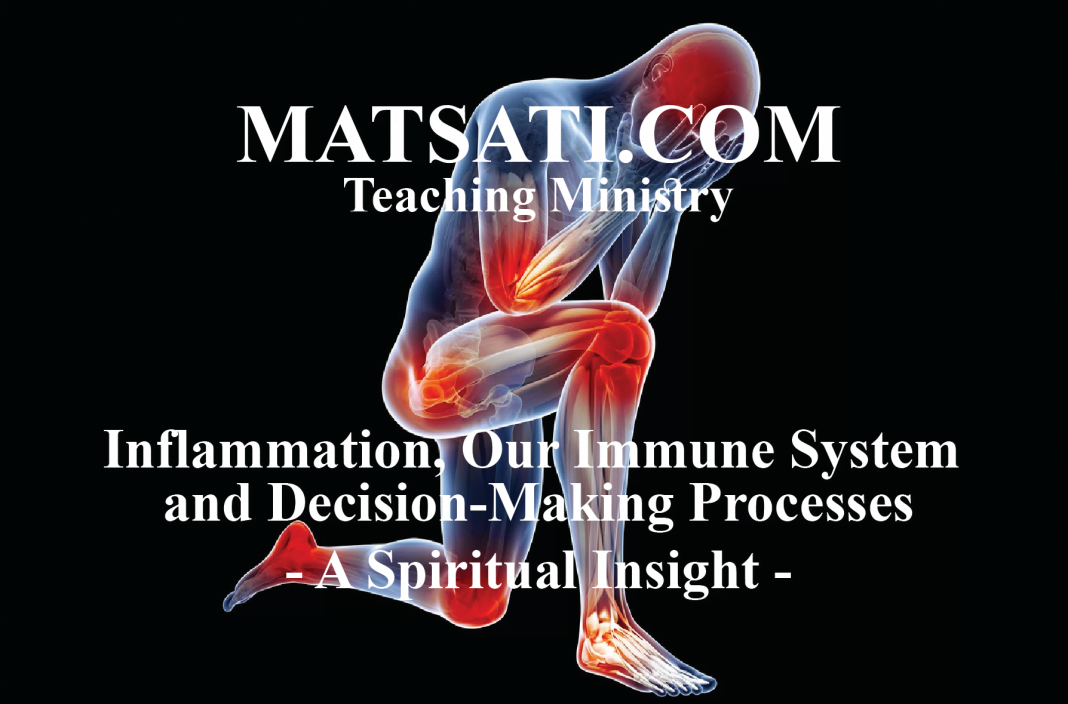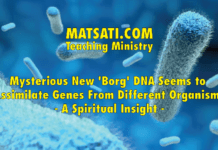A lot of research has been conducted on the topic of inflammation. The research that is being conducted is shedding light on the fascinating relationship between inflammation, behavior, and our immune system. The studies suggest our immune system can play a significant role in both our motivation and decision making abilities. The idea is that inflammatory activity in the brain can influence everything from behavior to mood, self regulation, and decision making. This is supported by research that suggest neuro-inflammation and suicidal thoughts are associated, and are part of the physiological mechanism. [1] Another study proposes a link between higher levels of inflammation and individuals who prefer immediate gratification as opposed to delayed rewards. [2] The idea is that this mechanism is such that when the body is placed in a stressful situation it focuses upon the immediate surrounding scenario as opposed to risking one’s current well-being on the prospect of a future reward. The study revealed inflammatory levels could be used to predict how impulsive and present focused a person’s decisions would be. The conclusion was there were high levels of inflammatory markers correlating with subjects choosing immediate rewards over future, potentially larger rewards. The idea then is with the increase in poor diet, limited exercise, and increased stress in western societies, there is a corresponding increase in chronic inflammation, which may contribute to depression, and other disorders associated with motivational impairments. Researchers are trying to take the findings in these types of studies in the literature to develop strategies for improving our health, and how there is a connection between what we eat and exercise that may improve our mental health.
References
- Marcel Adam Just, Lisa Pan, Vladimir L. Cherkassky, Dana L. McMakin, Christine Cha, Matthew K. Nock & David Brent, “Machine learning of neural representations of suicide and emotion concepts identifies suicidal youth”,Nature Human Behaviour 1, 911–919 (2017)
- Hariri AR1, Brown SM, Williamson DE, Flory JD, de Wit H, Manuck SB,“Preference for immediate over delayed rewards is associated with magnitude of ventral striatal activity.”, J Neurosci. 2006 Dec 20;26(51):13213-7.
The spiritual insights that we receive from this research is how the Lord God is concerned, according to the Torah, that we have a healthy spiritual diet receiving a daily diet of Scripture. The example that we can take from the Scriptures is from the life of Jehoshaphat. According to 1 Kings 15:24, Jehoshaphat was the son of Asa, and king of the Kingdom of Judah, in succession to his father. His children included Jehoram, who succeeded him as king. His mother was Azubah. Jehoshaphat ascended to the throne at the age of thirty-five and reigned for twenty-five years. He spent the first years of his reign fortifying his kingdom against the Kingdom of Israel. He had a great zeal for the Lord by suppressing the idolatrous worship of the “high places” according to 2 Chronicles 17:6. In the third year of his reign Jehoshaphat sent out priests and Levites over the land to instruct the people in the Torah. This command was given in Devarim / Deuteronomy 31:10 Then Moses commanded them, saying, ‘At the end of every seven years, at the time of the year of remission of debts, at the Feast of Booths, 31:11 when all Israel comes to appear before the Lord your God at the place which He will choose, you shall read this law in front of all Israel in their hearing. 31:12 ‘Assemble the people, the men and the women and children and the alien who is in your town, so that they may hear and learn and fear the Lord your God, and be careful to observe all the words of this law. 31:13 ‘Their children, who have not known, will hear and learn to fear the Lord your God, as long as you live on the land which you are about to cross the Jordan to possess.’ (NASB, י וַיְצַו מֹשֶׁה אוֹתָם לֵאמֹר מִקֵּץ | שֶׁבַע שָׁנִים בְּמֹעֵד שְׁנַת הַשְּׁמִטָּה בְּחַג הַסֻּכּוֹת: יא בְּבוֹא כָל-יִשְֹרָאֵל לֵרָאוֹת אֶת-פְּנֵי יְהוָֹה אֱלֹהֶיךָ בַּמָּקוֹם אֲשֶׁר יִבְחָר תִּקְרָא אֶת-הַתּוֹרָה הַזֹּאת נֶגֶד כָּל-יִשְֹרָאֵל בְּאָזְנֵיהֶם: יב הַקְהֵל אֶת-הָעָם הָאֲנָשִׁים וְהַנָּשִׁים וְהַטַּף וְגֵרְךָ אֲשֶׁר בִּשְׁעָרֶיךָ לְמַעַן יִשְׁמְעוּ וּלְמַעַן יִלְמְדוּ וְיָרְאוּ אֶת-יְהוָֹה אֱלֹהֵיכֶם וְשָׁמְרוּ לַעֲשֹוֹת אֶת-כָּל-דִּבְרֵי הַתּוֹרָה הַזֹּאת: יג וּבְנֵיהֶם אֲשֶׁר לֹא-יָדְעוּ יִשְׁמְעוּ וְלָמְדוּ לְיִרְאָה אֶת-יְהוָֹה אֱלֹהֵיכֶם כָּל-הַיָּמִים אֲשֶׁר אַתֶּם חַיִּים עַל-הָאֲדָמָה אֲשֶׁר אַתֶּם עֹבְרִים אֶת-הַיַּרְדֵּן שָׁמָּה לְרִשְׁתָּהּ:)
The author of the Book of Chronicles generally praises his reign, stating that the kingdom enjoyed a great measure of peace and prosperity, the blessing of God resting on the people “in their basket and their store.”
2 Chronicles 17:1-12
17:1 Jehoshaphat his son then became king in his place, and made his position over Israel firm. 17:2 He placed troops in all the fortified cities of Judah, and set garrisons in the land of Judah and in the cities of Ephraim which Asa his father had captured. 17:3 The Lord was with Jehoshaphat because he followed the example of his father David’s earlier days and did not seek the Baals, 17:4 but sought the God of his father, followed His commandments, and did not act as Israel did. 17:5 So the Lord established the kingdom in his control, and all Judah brought tribute to Jehoshaphat, and he had great riches and honor. 17:6 He took great pride in the ways of the Lord and again removed the high places and the Asherim from Judah. 17:7 Then in the third year of his reign he sent his officials, Ben-hail, Obadiah, Zechariah, Nethanel and Micaiah, to teach in the cities of Judah; 17:8 and with them the Levites, Shemaiah, Nethaniah, Zebadiah, Asahel, Shemiramoth, Jehonathan, Adonijah, Tobijah and Tobadonijah, the Levites; and with them Elishama and Jehoram, the priests. 17:9 They taught in Judah, having the book of the law of the Lord with them; and they went throughout all the cities of Judah and taught among the people. 17:10 Now the dread of the Lord was on all the kingdoms of the lands which were around Judah, so that they did not make war against Jehoshaphat. 17:11 Some of the Philistines brought gifts and silver as tribute to Jehoshaphat; the Arabians also brought him flocks, 7,700 rams and 7,700 male goats. 17:12 So Jehoshaphat grew greater and greater, and he built fortresses and store cities in Judah. (NASB, א וַיִּמְלֹךְ יְהוֹשָׁפָט בְּנוֹ תַּחְתָּיו וַיִּתְחַזֵּק עַל-יִשְֹרָאֵל: ב וַיִּתֶּן-חַיִל בְּכָל-עָרֵי יְהוּדָה הַבְּצֻרוֹת וַיִּתֵּן נְצִיבִים בְּאֶרֶץ יְהוּדָה וּבְעָרֵי אֶפְרַיִם אֲשֶׁר לָכַד אָסָא אָבִיו: ג וַיְהִי יְהֹוָה עִֹם-יְהוֹשָׁפָט כִּי הָלַךְ בְּדַרְכֵי דָּוִיד אָבִיו הָרִאשֹׁנִים וְלֹא דָרַשׁ לַבְּעָלִים: ד כִּי לֵאלֹהֵי אָבִיו דָּרָשׁ וּבְמִצְוֹתָיו הָלָךְ וְלֹא כְּמַעֲשֵֹה יִשְֹרָאֵל: ה וַיָּכֶן יְהֹוָה אֶת-הַמַּמְלָכָה בְּיָדוֹ וַיִּתְּנוּ כָל-יְהוּדָה מִנְחָה לִיהוֹשָׁפָט וַיְהִי-לוֹ עֹשֶׁר-וְכָבוֹד לָרֹב: ו וַיִּגְבַּהּ לִבּוֹ בְּדַרְכֵי יְהֹוָה וְעוֹד הֵסִיר אֶת-הַבָּמוֹת וְאֶת-הָאֲשֵׁרִים מִיהוּדָה: ז וּבִשְׁנַת שָׁלוֹשׁ לְמָלְכוֹ שָׁלַח לְשָֹרָיו לְבֶן-חַיִל וּלְעֹבַדְיָה וְלִזְכַרְיָה וְלִנְתַנְאֵל וּלְמִיכָיָהוּ לְלַמֵּד בְּעָרֵי יְהוּדָה: ח וְעִמָּהֶם הַלְוִיִּם שְׁמַעְיָהוּ וּנְתַנְיָהוּ וּזְבַדְיָהוּ וַעֲשָֹהאֵל וּשְׁמִרָימוֹת [וּשְׁמִירָמוֹת] וִיהוֹנָתָן וַאֲדֹנִיָּהוּ וְטוֹבִיָּהוּ וְטוֹב אֲדוֹנִיָּה הַלְוִיִּם וְעִמָּהֶם אֱלִישָׁמָע וִיהוֹרָם הַכֹּהֲנִים: ט וַיְלַמְּדוּ בִּיהוּדָה וְעִמָּהֶם סֵפֶר תּוֹרַת יְהֹוָה וַיָּסֹבּוּ בְּכָל-עָרֵי יְהוּדָה וַיְלַמְּדוּ בָּעָם: י וַיְהִי | פַּחַד יְהֹוָה עַל כָּל-מַמְלְכוֹת הָאֲרָצוֹת אֲשֶׁר סְבִיבוֹת יְהוּדָה וְלֹא נִלְחֲמוּ עִם-יְהוֹשָׁפָט: יא וּמִן-פְּלִשְׁתִּים מְבִיאִים לִיהוֹשָׁפָט מִנְחָה וְכֶסֶף מַשָּׂא גַּם הָעַרְבִיאִים מְבִיאִים לוֹ צֹאן אֵילִים שִׁבְעַת אֲלָפִים וּשְׁבַע מֵאוֹת וּתְיָשִׁים שִׁבְעַת אֲלָפִים וּשְׁבַע מֵאוֹת: יב וַיְהִי יְהוֹשָׁפָט הֹלֵךְ וְגָדֵל עַד-לְמָעְלָה וַיִּבֶן בִּיהוּדָה בִּירָנִיּוֹת וְעָרֵי מִסְכְּנוֹת:)
So what we find here is the significance of studying God’s Word and applying it to our lives. Jehoshaphat understood this and sent teachers into the land of Judah to instruct the people in the ways of God. In order to live as God wants us to live, we have to hear His word in order to gain faith and then to be faithful. This is why Paul wrote “So then faith cometh by hearing, and hearing by the word of God.” (Romans 10:17) Paradoxically, we as the people of God, we either freely choose to live as a tzaddik (righteous person of faith) or as a rasha (idolatrous person of unbelief), we can’t have both at the same time. The Lord commanded us to maintain certain values, and ethics according to his Torah, and this follows through with faithful submission of our lives to the Lord and to His Word. Now we need the help of the Lord God Almighty to do these things. If we reject the Lord God of Israel, His Messiah Yeshua, and the Torah, we will invariably be consigned to a life centered upon the yetzer hara (the evil inclination) and self-serving idolatry (those we set up in our hearts, Ezekiel 14, or the physical things one may worship). We have to be pointed in setting our minds to choose to serve the Lord on a daily basis. The question presented to us every day is “will we serve the Lord and take hold of His promises, or will we spurn His commandments in deference to our own selfish desires?” In the story of Jehoshaphat he had set his kingdom in the direction of following in God’s ways by sending out teachers to instruct the people in God’s Torah. What exactly is Torah? The word “Torah” (תורה) in Hebrew is derived from the root ירה, which in the hif’il conjugation means “to guide” or “to teach.” (see Vayikra / Leviticus 10:11). The meaning of the word is therefore rooted in “teaching,” “doctrine,” or “instruction.” The modern translation commonly accepted as “law” actually gives a wrong impression. Torah is God’s instruction or teaching to mankind. This definition is vitally important. It means that unlike other sciences or intellectual systems that remain separate from performance, God’s instruction must be translated into action. The Talmud has an interesting discussion on whether learning or action is more important.
Talmud Bavli Kiddushin 40b
וכבר היה רבי טרפון וזקנים מסובין בעלית בית נתזה בלוד נשאלה שאילה זו בפניהם תלמוד גדול או מעשה גדול נענה רבי טרפון ואמר מעשה גדול נענה ר”ע ואמר תלמוד גדול נענו כולם ואמרו תלמוד גדול שהתלמוד מביא לידי מעשה
In connection to the mishna’s statement about the importance of Torah study, the Gemara relates the following incident: And there already was an incident in which Rabbi Tarfon and the Elders were reclining in the loft of the house of Nit’za in Lod, when this question was asked of them: Is study greater or is action greater? Rabbi Tarfon answered and said: Action is greater. Rabbi Akiva answered and said: Study is greater. Everyone answered and said: Study is greater, but not as an independent value; rather, it is greater as study leads to action.
The Talmudic discussion concludes with the decision that studying God’s word is most important, because it leads to action. However, study is not independent from action. In order to obey God’s word, we have to have prior knowledge meaning we must learn God’s principles. It is in this way that God had given his people an instruction manual on how to lead an ethical and moral life. If we do fail to teach the Torah, which is the foundation stone of all of scripture, individuals and society will descend into the abyss. An example may be taken from recent news (June 2019) how the state of New York has now added insanity to bloodlust in the sense that this state which has made it legal to abort a baby in the womb right until the moment of delivery has deemed it inhumane to declaw cats. Another example is in Virginia, Representative Kathy Tran introduced two new bills, one removing virtually all restrictions on abortion, the other protecting cankerworms. To quote her directly she stated the goal of the bill is to “help save butterflies by protecting the cankerworm (caterpillar)” from deadly insecticides. This bill then led to media headlines that stated, “Kathy Tran cares more for butterflies than babies in the womb” and “Kathy Tran (Democratic-VA Representative) defender of the cankerworm, baby killer advocate.” These examples demonstrate how NOT KNOWING the God of Israel, His Word, and His Messiah Yeshua, leads to significantly skewed scales in morals and ethics. Representative Tran is able to see that the cankerworm has the potential to become a butterfly, but unable to see how the baby in the womb has the potential to become a fully-functioning beautiful human being in which the Rabbis call “an entire world.” Here New York is showing far more compassion for a kitten than for a baby, far more concern for the minor suffering of a cat than for the violent slaughter and dismemberment of unborn children. This is a demonic confusion and delusion on the part of the liberal left who have given themselves over to be rasha serving the doctrines of demons.
Obeying God’s Word in its truest sense is as a guide to living a moral and ethical life which leads to a fulfilled, meaningful, and holy life (a life that is separate from the world). The Rabbis say the Torah is the Wisdom of God, and this Wisdom existed with God before the creation of the world, and that the Lord God looked into His Torah and then created all of the world! (Kabbalistic perspective) The conclusion is that just as God existed before the world was created, so too did His wisdom. (Note a connection to John 1:1-14 and Yeshua the Messiah, the Word of God being with God, and Yeshua’s words stating existing before the Abraham existed, John 8, and how how Paul describes through Yeshua all things were created and are held together Colossians 1:16-17, etc.) The Zohar makes this statement that the Lord God Almighty looked into the Torah and created the world and so when man studies the Torah he maintains the world (see Paul on Colossians 1:16-17). If we do not study God’s Torah (His instruction) the world will descend into the abyss, and this is exactly what we are seeing in western society around the world (USA, Europe, etc) The reason this is God’s Truth is because the Torah contains the ethical maxims instructing mankind to live in peace, and to have love towards one another. The Torah is not limited to this alone, we are also to protect life and even to lay down one’s life for another! This is how God’s Word is understood to be the blueprint for creation, the creator’s plan, the Lord God looked into His wisdom and created the world. This is where we find the parallel in the scientific research on inflammation. Inflammation has a destructive quality in the body, causing not just physical harm, but also psycho-emotional harm as well. This is connected to having proper nutrition and exercise and to reducing stress. The parallel is to being instructed in God’s Ways for the purpose of living our lives for the glory of God. This should be the primary purpose of all that we do! The idea here has the Lord God himself entering into our lives, bringing His Word into our lives, making peace, and settling the tumultuous nature of our lives. Note all of the NT parallels in the teaching of the disciples and Paul and Yeshua Himself of the Lord God doing all of these things in the lives of those who would draw near to Him! In order to obey God’s word, we have to have prior knowledge meaning we must learn God’s principles. It is in this way that God had given his people an instruction manual on how to lead an ethical and moral life and having given us the example in His Son Yeshua the Messiah! Truth and life are found in Him, and without the God of Israel, His Messiah, and His Word written upon our hearts, there will be nothing but chaos in our lives and in this world!









